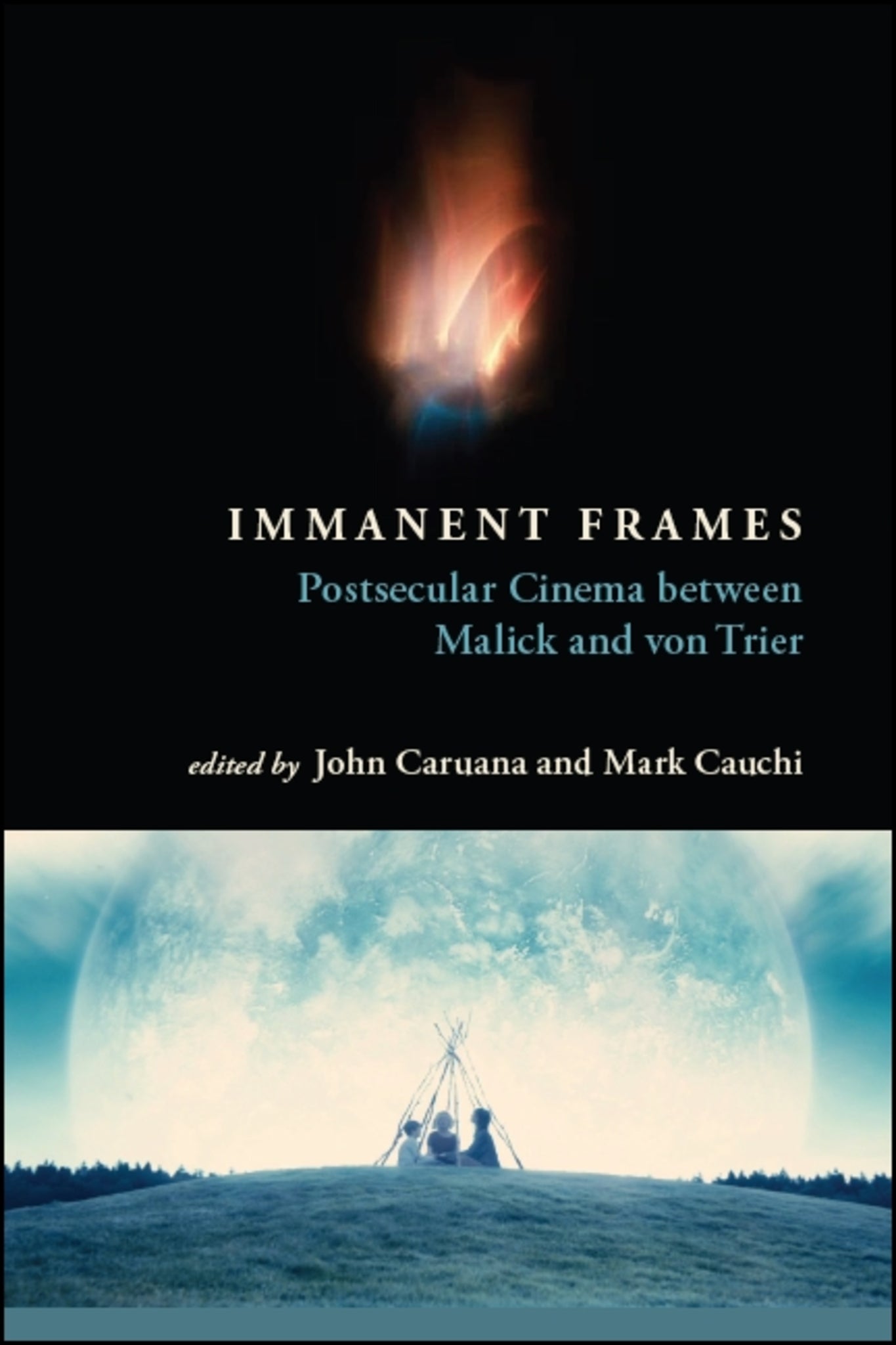We're sorry. An error has occurred
Please cancel or retry.
Immanent Frames

Some error occured while loading the Quick View. Please close the Quick View and try reloading the page.
Couldn't load pickup availability
- Format:
-
02 January 2019

Explores a growing number of films and filmmakers that challenge the strict boundaries between belief and unbelief.
For some time now, thinkers across the humanities and social sciences have increasingly called into question the once-dominant view of the relationship between modernity and secularism, prompting some to speak of a "postsecular turn." Until now, film studies has largely been silent about this development, even though cinema itself has been a major vehicle for such reflection. This fact became inescapable in 2011 when Terrence Malick's The Tree of Life and Lars von Trier's Melancholia were released within days of each other. While these two audacious and controversial films present seemingly opposite perspectives-the former a thoughtful meditation on faith, the latter a portrayal of nontriumphalist atheism-together they raise critical questions about transcendence and immanence in modern life. These films are, however, only the most conspicuous of a growing body of works that call forth similar and related questions-what this collection aptly calls "postsecular cinema."
Taking the nearly simultaneous release of The Tree of Life and Melancholia as its starting point and framing device, this pioneering collection sets out to establish the idea of postsecular cinema as a distinct body of films and a viable critical category. Adopting a film-philosophy approach, one group of essays examines Malick's and von Trier's films, while another looks at works by Chantal Akerman, Denys Arcand, the Dardenne brothers, and John Michael McDonagh, among others. The volume closes with two important interviews with Luc Dardenne and Jean-Luc Nancy that invite us to reflect more deeply on some of the central concerns of postsecular cinema.


"Immanent Frames stands out as a valuable response to an increasing tendency in recent films to tackle religious issues from an open-ended approach … this book will prove an important resource to scholars of religion and film, due to the rich variety of perspectives it encompasses as well as due to the thorough analyses it contains." — Journal of Religion and Film
Illustrations
Acknowledgments
What Is Postsecular Cinema? An Introduction
John Caruana and Mark Cauchi
Part I. The Poles of Postsecular Cinema: Malick and von Trier
1. Two Ways through Life: Postsecular Visions in Melancholia and The Tree of Life
Robert Sinnerbrink
2. Hegel, Malick, and the Postsecular Sublime
Lambert Zuidervaart
3. Repetition and Belief: A Kierkegaardian Reading of Malick’s The Tree of Life
John Caruana
4. Toward and Away from the World: Subjectivity After Loss in The Tree of Life
Steven Rybin
5. The Death of God and the Genesis of Worldhood in von Trier’s Melancholia
Mark Cauchi
6. Notes on Divine Homelessness: A Reading of Lars von Trier’s Dogville
Costica Bradatan
Part II. The Spectrum of Postsecular Cinema: Beyond Malick and von Trier
7. Face to Face with Chantal Akerman
William Rothman
8. "There’s No Point in Killing a Bad Priest": John Michael McDonagh’s Calvary and the
Broken Middle
Catherine Wheatley
9. The Immortal Thighs of Ines Orsini: The Transcendence of Grace in Denys Arcand’s The Barbarian Invasions
Russell J. A. Kilbourn
10. Three Immersions: Mouchette, Vagabond, Rosetta
Charles Warren
11. "Put Yourself in My Place": Two Days, One Night and the Journey Back to Life
Sarah Cooper
Part III. Conversations on Postsecular Cinema: Luc Dardenne and Jean-Luc Nancy
12. Can We Think the Inconsolable without Consolation? An Interview with Luc Dardenne
Luc Dardenne
13. Could It Be that Cinema Itself Is Contemporaneity? A Conversation with Jean-Luc Nancy
Jean-Luc Nancy
Contributors
Index



